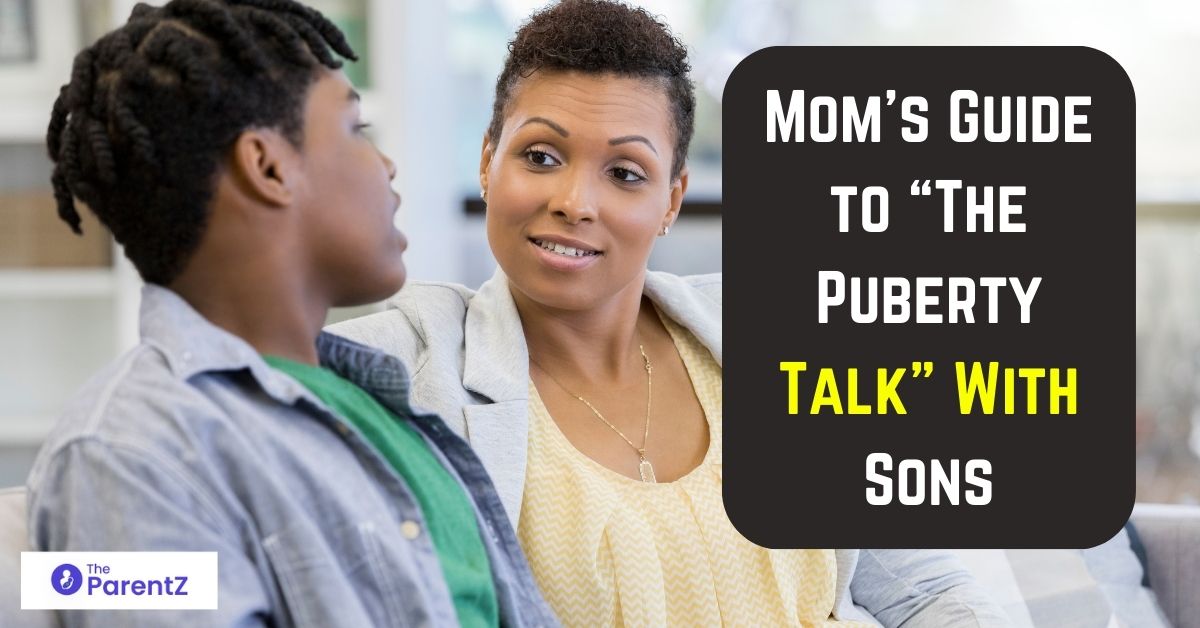Tips For Mothers On How To Explain Puberty To Sons Without Awkwardness. In an ideal scenario, fathers help their sons understand and deal with puberty and mothers do the same for daughters. However, mothers may sometimes need to step up and explain puberty to their sons. Even with children of the same sex, these conversations sometimes get awkward. Here are some tips for mothers to talk to their sons about puberty.
The Puberty Talk Is Very Important
You may feel like they’ll figure it out on their own because puberty in boys isn’t as drastic as it is in girls. The truth is that it is almost equally jarring for both boys and girls. Unlike girls, boys can go without asking you about the changes they notice in themselves. It is a bad idea for you to be unaware of what your son thinks about puberty. It is a major factor in the formation of his attitude towards women. He must feel comfortable to talk freely to you about anything related to this. Read A Father’s Guide to Discussing Puberty with His Daughter
Don’t Make It A Big Deal
The surest way to make everything awkward while discussing puberty with your son is to try and prepare him for it. Your approach towards the topic needs to be as casual as you can make it. Avoid saying anything like “I need to talk to you about something.” Your son will be able to overcome any awkwardness or embarrassment only if you do so first.
Waiting For The Right Time
Let’s face it – you want to put this off for as long as possible because it’s not an easy topic to discuss. Remember that waiting for the right time is a very bad idea. There is nothing such as a wrong time to have the puberty talk with your son. It is a natural process. Your son needs to be aware of what will happen and why before it begins to happen to him. The best time to discuss puberty with your son is when he is around 10-12 years old.
Use Scientific Terms
Puberty talk gets a lot more comfortable for both you and your son if you approach it scientifically. You will find yourself feeling less tense about it if you make it a little impersonal. Tell your son about puberty like you would tell him about photosynthesis in plants. Reinforce in his mind the idea that this is just another natural process. Children mimic our behaviour, so he will only be awkward if he sees you being awkward about this.
Talk Before You Have To
The worst thing that can happen is unfortunately what happens most of the time. Parents keep shying away from the puberty talk and children turn to the internet to figure out what’s happening to their bodies. The influence of social media and partially understood puberty can inflict severe and permanent damage to your son’s mind. Don’t wait for something to happen before talking to your son about puberty.
Prepare Beforehand
Do some research about male puberty before you broach the subject with your son. Once you are familiar with the basics like what causes puberty and signs of puberty in boys, doing the puberty talk gets significantly easier.
Do It Yourself
It is very important for your son to feel comfortable discussing puberty and anything related to it with you. This will determine whether or not he will be able to talk to you about sexuality and anything related to it in the future. You can ask his uncle, or any other older male whom he likes, to help with the first puberty talk. That way, your son will know that he can turn to either of you when he needs help. All the best!








Be the first one to comment on this story.